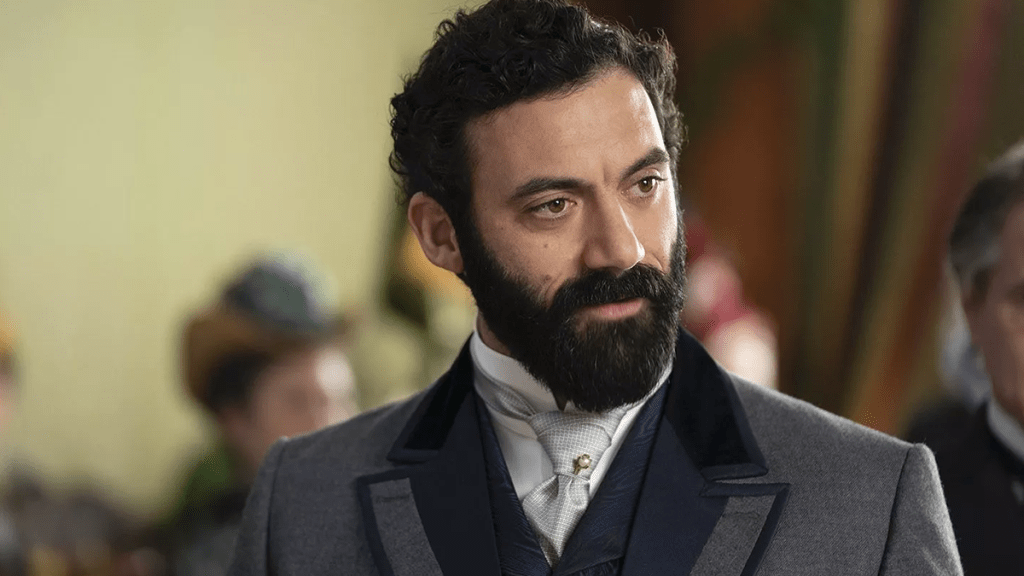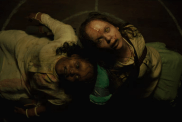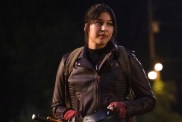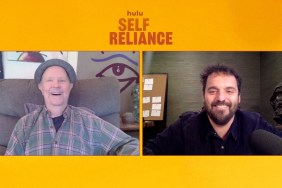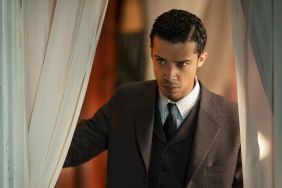ComingSoon Editor-in-Chief Tyler Treese spoke with The Gilded Age star Morgan Spector about the HBO drama series. The actor spoke about his character’s demeanor and his thoughts on method acting. The season finale of The Gilded Age airs on HBO on Sunday, December 17.
“In Season 2 of The Gilded Age, Bertha inches toward a leading role in society, Marian starts teaching, Ada begins a new courtship, and Peggy taps into her activist spirit,” reads the new season’s synopsis.
Tyler Treese: The characters of George and Bertha have really just resonated with viewers. What’s most rewarding about seeing it really connect with fans? They start theorizing, and you can just tell how invested they are in your performances and in the writing.
Morgan Spector: Yeah, there’s no question. It’s satisfying because it feels like … on one level, it means that the audience has been able to get immersed in the world and that means that they’re getting pleasure from it. And I think that’s what our show is trying to do, is just give people an old-fashioned good time. If speculating about what we’re going to do and thinking about us is enjoyable, if it’s pleasurable, I think that means we’ve done our jobs and that’s all we’re trying to do, here, at the end of the day.
Carrie Coon’s phenomenal in the show, and you guys are great onscreen together. Can you speak about how your working relationship has evolved? You’ve done two seasons now — that’s a lot of onscreen time.
Well, Carrie is naturally extremely violent, and so early on, when we worked together, she would just be hitting me constantly, and it was, something we actually had to deal with offset. But since then, it’s actually been cool. We’ve managed to work through our differences more peacefully. But actually, I had worked with her before for a couple of days. We did a very strange short film by a director named Robin Comisar about people who get trapped in a 30-second Red Lobster commercial. At one point in the movie, she cuts off my tongue with a butter knife, so we already had a certain working rapport, which I think has served us very well in this world.
I feel very fortunate because my character, George, I think deeply admires and respects his wife, and that is the foundation for their partnership. He supports her ambitions and wants nothing more than to see her achieve her wildest dreams. Actually, the way I think about Carrie is not dissimilar. I have tremendous admiration and respect for her as an actor and as a person. I feel like my job in the scene is just to help her and help us do the thing as best we can can. It’s easy when the objectives of the character and the objectives of the actor overlap in that way. So yeah, she makes it all easy.
We’ve seen, in recent episodes, George is one to keep his secrets, but there’s almost an understanding there. She’s aware that there are going to be secrets and she doesn’t ask too many questions. Can you speak to that understanding they have and that dynamic?
I think they do deeply trust each other. That’s why the rift at the beginning of the season was so shocking for both of them. With that said, they each have their domains. I mean, the world of society is Bertha’s domain and the world of business is George’s and I think she doesn’t need to know too much about his domain and he doesn’t need to know too much about hers. But there are places where those worlds overlap and I think that’s where they have potential conflicts and struggles.
But yes, I think the unspoken secret of George and Bertha’s success together is that his money and power undergird everything and I don’t think that he really wants to lord that over her. He wants to let her have as much autonomy and agency as she can. So when he can conceal that fact, I think he does, and I think it’s one of his more gracious qualities.
There are so many interesting themes related to the time period in the show. Just this season, we’ve seen the working conditions and the labor situation. I was just curious if this has really made you into a history buff, because I find myself going on these deep dives on Wikipedia and other sites.
That’s great! When we started getting into this labor history, that was precisely my hope, was that people would get excited about the show and then be curious. “Does this have a real-life analog? What were these labor struggles really like?” Because I think these are some of the most crucial American stories and I don’t think that, broadly speaking, we are familiar enough with them. U.S. Labor history is really the bloodiest history in the world.
The things that we now take for granted as worker protections — eight-hour days, weekends, child labor laws — all of these things were fought for and died for by a not insignificant number of people over decades. These were long fights. They were bloody fights, and I think that history is understudied and underappreciated. I think it’s really important stuff. So to the extent that we’ve inspired those internet rabbit holes, I’m really thrilled to hear that.
I was curious what your thoughts are on the fashion of the era, because you get to look quite dapper. You’re dressed quite comfortably now — I assume it’s a lot more work when you’re getting into the big suits for the show. How has it been, getting dressed up all the time for the show?
It’s fun. I think if actors are honest, part of what brings us to this career is this fascination with playing dress-up because there’s something amazing about putting on clothes that you yourself would never wear, and all of a sudden, you feel a little bit like a different person. When you put on these clothes that nobody really has worn for a hundred-and-some-odd years, you really do feel like … we wear these high collars that … automatically affects your posture. It makes it so you can’t slouch into it. Your bearing suddenly changes. These clothes actually, in many ways, they’re very comfortable because they’re completely custom-made for me, which is an unusual thing for me.
I’m not used to wearing clothes like that. So in that way, they’re incredible. Kasia [Walicka-Maimone] and Patrick [Wiley] have really made it so these clothes tell a story about who we are. My clothes are always in gray, like deep dark blacks and grays and blues — the color of iron, the color of the railroad, the colors of steel. That’s very deliberate and that’s about creating an atmosphere around this character that tells us who he fundamentally. But I have to say, it is more fun seeing what the ladies get to wear because the dresses are more of a venue for spectacular for Kasia’s spectacular brilliance.
From a filming perspective, doing a a period piece like this — how immersed can you get into feeling like you’re back in time? There’s so much equipment there when you’re filming and so much technology, but the sets are so great and it really feels like it when you’re watching.
I think the fun of playing a character that’s very different from you is being able to move in and out at will. I know some people really like to stay in a character. They like to stay in an accent, they like to stay in a period. For me, that has just never made sense. It’s more about … [Laughs]. I don’t know, the idea of going back to my dressing room and FaceTiming my kid and still pretending that it’s the 19th century … it just doesn’t track for me. I think we have these amazing sets. We have these amazing buildings. We often shoot in locations that really feel … one of the great things about working on a show with this kind of production value is you walk into the space and it feels like the space and everything that’s in that thing is exactly what should be there.
You just interact with all of it as you naturally would and it looks like it’s the 19th century, right? I don’t know. I’m relying on the power of montage and the ability of the audience to suspend their disbelief to a large extent.
Julian Fellowes has wonderfully written every single episode of this series, and we don’t see that a ton in TV where it’s one author throughout and we see his hands on every element. How rewarding has that been, having that relationship where you know who’s writing your character and you’ve gotten to see a very consistently written character throughout because of that?
I’ve worked on shows before where one writer has this very heavy hand in terms of crafting the voice of each character and the voice of the show. And I’ve worked on shows where the tone isn’t maintained in quite as disciplined a way. I want to definitely give Sonja Warfield her credit. She is the other writer on the show, and she and Julian do a lot of their work together. I think she’s brought an enormous amount to the show.
I do think there is something great about having something that comes out of a single voice in a single perspective. There’s something pure about it. I like the theater for that reason — you’re sort of there to serve somebody’s vision of the world and help them fully articulate their perspective. Even if there are places you might bump up against that perspective yourself, your job as an actor is to commit to it and help their vision be be realized.
